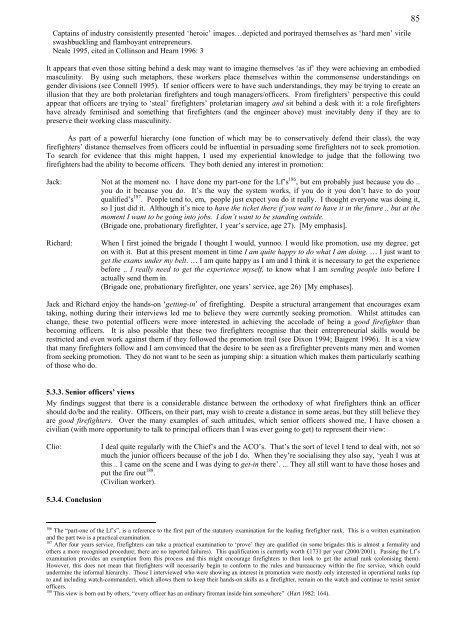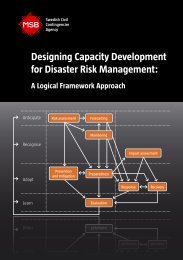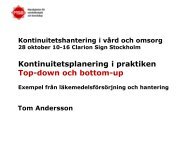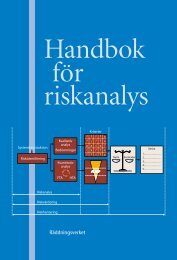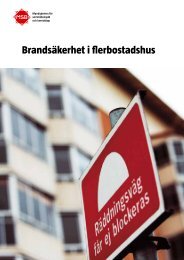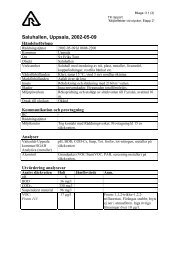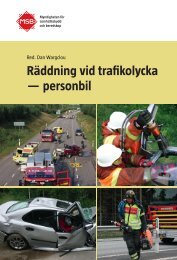One more last working class hero
One more last working class hero
One more last working class hero
You also want an ePaper? Increase the reach of your titles
YUMPU automatically turns print PDFs into web optimized ePapers that Google loves.
Captains of industry consistently presented ‘<strong>hero</strong>ic’ images…depicted and portrayed themselves as ‘hard men’ virile<br />
swashbuckling and flamboyant entrepreneurs.<br />
Neale 1995, cited in Collinson and Hearn 1996: 3<br />
It appears that even those sitting behind a desk may want to imagine themselves ‘as if’ they were achieving an embodied<br />
masculinity. By using such metaphors, these workers place themselves within the commonsense understandings on<br />
gender divisions (see Connell 1995). If senior officers were to have such understandings, they may be trying to create an<br />
illusion that they are both proletarian firefighters and tough managers/officers. From firefighters’ perspective this could<br />
appear that officers are trying to ‘steal’ firefighters’ proletarian imagery and sit behind a desk with it: a role firefighters<br />
have already feminised and something that firefighters (and the engineer above) must inevitably deny if they are to<br />
preserve their <strong>working</strong> <strong>class</strong> masculinity.<br />
As part of a powerful hierarchy (one function of which may be to conservatively defend their <strong>class</strong>), the way<br />
firefighters’ distance themselves from officers could be influential in persuading some firefighters not to seek promotion.<br />
To search for evidence that this might happen, I used my experiential knowledge to judge that the following two<br />
firefighters had the ability to become officers. They both denied any interest in promotion:<br />
Jack: Not at the moment no. I have done my part-one for the Lf’s 186 , but em probably just because you do ..<br />
you do it because you do. It’s the way the system works, if you do it you don’t have to do your<br />
qualified’s 187 . People tend to, em, people just expect you do it really. I thought everyone was doing it,<br />
so I just did it. Although it’s nice to have the ticket there if you want to have it in the future .. but at the<br />
moment I want to be going into jobs. I don’t want to be standing outside.<br />
(Brigade one, probationary firefighter, 1 year’s service, age 27). [My emphasis].<br />
85<br />
Richard:<br />
When I first joined the brigade I thought I would, yunnoo. I would like promotion, use my degree, get<br />
on with it. But at this present moment in time I am quite happy to do what I am doing. … I just want to<br />
get the exams under my belt. … I am quite happy as I am and I think it is necessary to get the experience<br />
before .. I really need to get the experience myself, to know what I am sending people into before I<br />
actually send them in.<br />
(Brigade one, probationary firefighter, one years’ service, age 26) [My emphases].<br />
Jack and Richard enjoy the hands-on ‘getting-in’ of firefighting. Despite a structural arrangement that encourages exam<br />
taking, nothing during their interviews led me to believe they were currently seeking promotion. Whilst attitudes can<br />
change, these two potential officers were <strong>more</strong> interested in achieving the accolade of being a good firefighter than<br />
becoming officers. It is also possible that these two firefighters recognise that their entrepreneurial skills would be<br />
restricted and even work against them if they followed the promotion trail (see Dixon 1994; Baigent 1996). It is a view<br />
that many firefighters follow and I am convinced that the desire to be seen as a firefighter prevents many men and women<br />
from seeking promotion. They do not want to be seen as jumping ship: a situation which makes them particularly scathing<br />
of those who do.<br />
5.3.3. Senior officers’ views<br />
My findings suggest that there is a considerable distance between the orthodoxy of what firefighters think an officer<br />
should do/be and the reality. Officers, on their part, may wish to create a distance in some areas, but they still believe they<br />
are good firefighters. Over the many examples of such attitudes, which senior officers showed me, I have chosen a<br />
civilian (with <strong>more</strong> opportunity to talk to principal officers than I was ever going to get) to represent their view:<br />
Clio:<br />
I deal quite regularly with the Chief’s and the ACO’s. That’s the sort of level I tend to deal with, not so<br />
much the junior officers because of the job I do. When they’re socialising they also say, ‘yeah I was at<br />
this .. I came on the scene and I was dying to get-in there’. ... They all still want to have those hoses and<br />
put the fire out 188 .<br />
(Civilian worker).<br />
5.3.4. Conclusion<br />
186 The “part-one of the Lf’s”, is a reference to the first part of the statutory examination for the leading firefighter rank. This is a written examination<br />
and the part two is a practical examination.<br />
187 After four years service, firefighters can take a practical examination to ‘prove’ they are qualified (in some brigades this is almost a formality and<br />
others a <strong>more</strong> recognised procedure; there are no reported failures). This qualification is currently worth £1731 per year (2000/2001). Passing the Lf’s<br />
examination provides an exemption from this process and this might encourage firefighters to then look to get the actual rank (colonising them).<br />
However, this does not mean that firefighters will necessarily begin to conform to the rules and bureaucracy within the fire service, which could<br />
undermine the informal hierarchy. Those I interviewed who were showing an interest in promotion were mostly only interested in operational ranks (up<br />
to and including watch-commander), which allows them to keep their hands-on skills as a firefighter, remain on the watch and continue to resist senior<br />
officers.<br />
188 This view is born out by others, “every officer has an ordinary fireman inside him somewhere” (Hart 1982: 164).


